
Type of our Activities
We conduct 10 different types of activities to develop various skills in children which are very important to be developed at the right age.

Speech Development
Speech and language are the skills we use to communicate with others. We form these skills during the first years of life. By age 6, most children learn the basics. Try to talk and read to your child often to boost these skills.
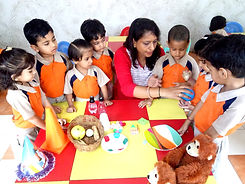
Cognitive Development
Cognitive skill development in children involves learning skills, such as attention, memory, and thinking. Genetic makeup is responsible for some cognitive ability, but most cognitive skills are learned and therefore can be improved with proper training.
Creativity Development
The world of the preschooler is one of imagination and magic. For many children, their creativity will reach its peak before the age of six, after which it will begin to decline with the onset of formal schooling and the developmental drive towards conformity.
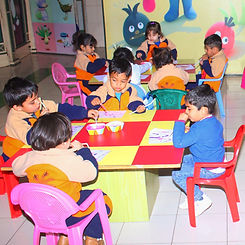
Personality Development
Personality means a character and appearance of a person just like its pattern of thoughts, Behavior, feelings, communication ability and various other positive features. Every child inherits some Personality features from its parents. The Dynamic personality works in the beginning of childhood.

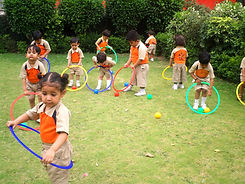
Motor Skill Development
Motor skills enable your child to perform important everyday tasks, such as getting out of bed and going downstairs for breakfast, fine motor abilities allow for increasing independence in smaller but equally significant matters: opening doors, zipping zippers, brushing teeth, washing hands, and so on.

Physical Development
Physical development refers to a child's ability to perform tasks of greater complexity as he gets older. The sequence at which a child develops is orderly and predictable, but different children develop at different rates. Physical development involves language, social and motor skills.
Social Development
A child’s ability to interact in a healthy way with the people around her can impact everything from learning new words as a toddler to being able to resist peer pressure as a high school student, to successfully navigating the challenges of adulthood. Healthy social development can help your child in many ways.

Moral Development
Morality is the ability to see the difference between right and wrong in intentions, thoughts, actions, and behavior. Teaching this concept to children is the primary goal of teachers. Moral development deals with the concepts of morality that a child learns from infancy through adulthood.
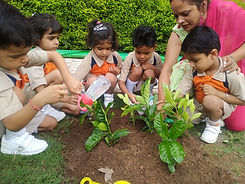

Play
Development
Play builds your child's creativity and imagination as well as other skills. Whether it is simply rolling a ball back and forth with a sibling or putting on a costume and imagining she's an astronaut—she's developing important social skills such as learning to take turns, cooperating, and getting along with others.
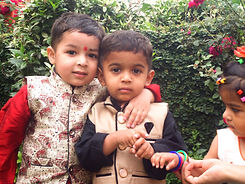
Emotional Development
A tremendous amount of social and emotional development takes place during early childhood. As kids experience temper tantrums, mood swings, and an expanding social world, they must learn more about their emotions as well as those of other people.
Child Development
Child development refers to the sequence of physical, language, thought and emotional changes that occur in a child from birth to the beginning of adulthood. During this process, a child progresses from dependency on their parents/guardians to increasing independence. Child development is strongly influenced by genetic factors (genes passed on from their parents) and events during prenatal life. It is also influenced by environmental facts and the child’s learning capacity. School's environment depends a lot on the child development stage at the most crucial age that is infants to 6 years.
